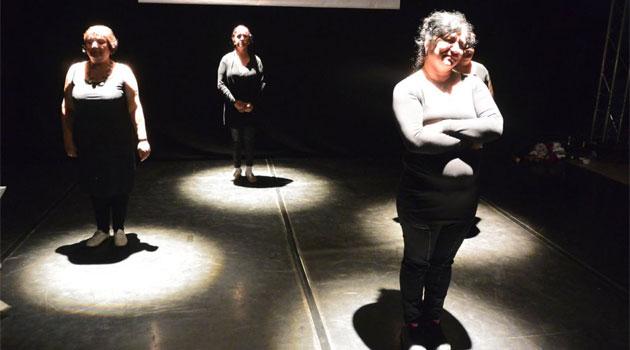Analysis: Swiss Parliament approves law on "solidarity aid" to victims of forced sterilization

“Solidarity contribution” instead of compensation
For decades, Swiss human rights organizations have been attempting to get the Swiss state to compensate the victims of forced sterilizations there on the basis of a law so that the survivors of these human rights abuses will not have to find attorneys, who are frequently expensive, to represent them in the courts and then wait for a judgment to finally take effect in their individual cases. It seems that their years of effort have finally seen success.
At the end of September, the Federal Assembly of the Swiss Confederation finally approved a law on financial aid to the victims of various forms of discrimination by the state. According to this law, an applicant who can prove he or she became a victim of discrimination on the basis of official state decisions taken up until 1981 will receive as much as CHF 25 000 (more than CZK 600 000 or EUR 23 000).
The law, of course, does not use the term “compensation”, but speaks only of a “solidarity contribution”, which is a significant difference from the legal point of view. If the law is not overturned by referendum in the interim, it will take effect in the spring.
Not just victims of forced sterilizations, but also various other forms of discrimination
The main aim of the law is to “acknowledge and remedy the wrongdoing caused to the victims of forced legal and social measures and forced removals” of individuals as children from their biological families. Switzerland expressly acknowledges in the law that “the victims were subjected to wrongdoing that had consequences for the rest of their lives.”
The law first defines the various forms of discrimination on the basis of which the victims are entitled to financial aid, and forced abortions or sterilizations are just part of a long list. The Swiss state also intends to financially support people who were illegally taken away from their parents and then placed in children’s homes or for adoption, as well as parents who had a child taken away from them.
The law also covers those who, within the framework of official decisions, became the victims of either physical or psychological violence, sexual abuse, forced administration of medication that was harmful to them, medical experimentation without their informed consent, economic exploitation, or forced labor without proportionate remuneration. The solidarity contribution will also be awarded to persons who can prove that their “personal development was prevented” or who were “socially stigmatized”.
Those last two concepts are very vague, and thanks to their ambiguity, the authorities who decide whether to award the contribution will be able to object that such a thing can rarely be clearly proven. Those entitled to receive financial aid can also be the victims’ partners, children, parents or other loved ones.
No chance of success without documentation
The burden of proof, according to the approved wording of the law, lies with the applicant. That means the applicant must prove his or her status as a victim.
For that purpose, the law instructs, in detail, the mandatory archiving and provision of all documents necessary to proving such discrimination, including aspects of how the relevant files are to be accessed, how advice and support are to be provided to the applicants, and how the entire issue is to be handled in terms of scholarship. Regional information centers are to be estabished and those interested in advice about applying will be able to turn to them.
Grants to finance the work of aiding the applicants are to be made available to nonprofit organizations. The law also counts on financing media outreach projects to inform any eventual applicants of their options and how to proceed in order to access the financial aid offered.
The relevant authorities will be obligated to either approve or reject an application within four years. Should an application be rejected, the applicant will be able to appeal.
Compensation for most forced sterilization victims in the Czech Republic still not in sight
This new Swiss law, just like similar laws that have already been approved long ago in other countries, could become a model for the Czech law that has been in the process of being designed for more than 10 years to compensate those who have been sterilized under pressure or without providing informed consent. In this country, since the 1990s, the victims of this wrongdoing, together with human rights organizations, have been asking the Government to approve a similar law, and one year ago, Czech Minister for Human Rights, Equal Opportunities and Legislation Jiří Dienstbier submitted his own bill to the Government to provide them compensation in the amount of CZK 300 000 (EUR 11 000).
The Czech Government, however, immediately removed that bill from consideration. Compare that to the situation in Austria, where such compensation for the victims of forced sterilizations became possible in 1995.
According to a study by the European Roma Rights Centre (ERRC), in Germany more than 13 000 victims of forced sterilizations have received a one-time payment since 1980 on the basis of a decree adopted by the Federal Finance Ministry, and around 9 000 victims subsequently received a monthly contribution to their pension in the amount of not quite EUR 300 (according to data provided by the German Parliament at the beginning of 2012). In Sweden, which performed forced sterilizations up until 1976, compensation has been provided to more than 1 600 victims in the amount of 175 000 Swedish crowns (EUR 13 000) on the basis of a law adopted in 1999.
In the Czech Republic, as in other postcommunist countries, for the time being there is a lack of political will to compensate these victims across the board by adopting such legislation. The Governments of these countries apparently want to wait until the number of persons eligible is so few that the overall amount of compensation to be paid will represent an absolutely minimal burden for the state budget and no voters will be able to complain that they have significantly aided the members of the disliked minority groups subjected to this treatment.
